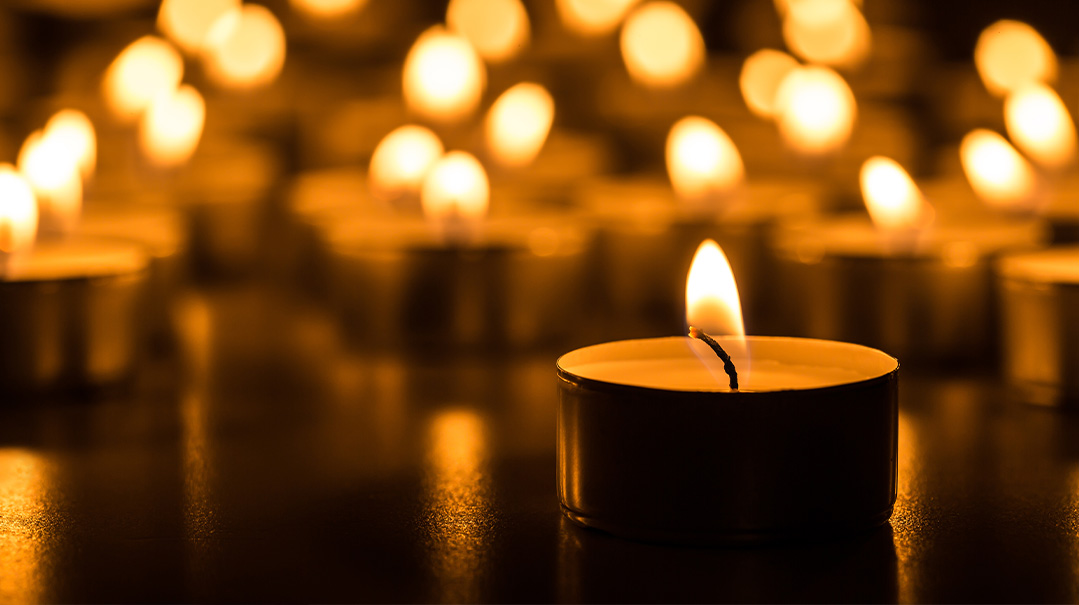A Lot to Laugh About

I’m somewhat of a collector of stories of astounding second chapters that no one could have possibly anticipated
Throughout the entire month of Adar, not just on Purim itself, we have a mitzvah to increase our simchah, and the entire month is considered a fortunate one. What is the nature of that simchah, which peaks on Purim, but exists for all of Adar?
The simchah of Adar is a prelude to the Geulah of Nissan. And the essence of that simchah lies in the quality of laughter. Sefer Yetzirah describes 12 powers that every person possesses. Each is associated with a particular tribe and particular month. The last of those 12 kochos is tzechok (laughter), and it is associated with Adar, the last of the months.
Laughter came into the world with the birth of Yitzchak: “And Sarah said, ‘Hashem has made laughter for me; all who hear [of Yitzchak’s birth] will laugh for me’ ” (Bereishis 21:6). And his very name means “he will laugh” — a reference to that future time when “our mouths will be filled with laughter.” Rav Moshe Shapira (upon whom I am drawing heavily) explained that laughter is the reaction to something totally unexpected, a sudden reversal, whether it be the pratfalls of slapstick comedy or witty verbal turnabout.
Yitzchak’s very existence was an impossibility. Under the system of the mazalos, there was no possibility of Avraham fathering children, and Sarah, Chazal teach, did not have a rechem with which to carry the child. At the Akeidah, Yitzchak’s soul flew up from his body, and he had to be revivified, after which he made a blessing of techiyas hameisim.
And of the Avos, Yitzchak is the one most associated with Geulah. A famous Gemara (Shabbos 89b) relates that in a future time, Hashem will approach each of the Avos and tell them, “Your children have sinned.” Avraham and Yaakov will reply, “Let them be destroyed to sanctify Your holy name.” But Yitzchak will respond, “Are they only my children, but not Your children as well? For at the moment when they placed ‘we will do’ before ‘we will understand,’ You called them ‘My son, My firstborn son.’ ” And that answer alone justifies our redemption.
Similarly, the entire history of Yitzchak Avinu’s descendants has been one of constant dead-ends from which there was no escape. When Binyamin was caught with the goblet in his saddlebag, there was no hope of returning to Yaakov, until Yosef revealed himself. At the Yam Suf, the sea in front and Pharaoh’s charioteers behind seemed to leave the escaping former slaves trapped, until the waters opened before them. And finally, Haman declared a decree of destruction on every Jewish man, woman, and child in the vast Persian Empire. And then, in one short 24-hour period, Haman went from the peak of power to the hangman’s noose.
The Jewish People are called Ephraim — haben yakir li Ephraim — after Avraham and Yitzchak, who referred to themselves as eifer, ashes. The essential quality of ash is that all the potential has been sucked out of it; it cannot be formed into anything, and is therefore without value. It has no future, only a past.
And so it often appears to us, as we await the Geulah. The future that we anticipate appears impossible. All of us believe in the coming of Mashiach. But I would guess that few, if any, can imagine any possible scenario for that seismic event taking place. Rather than the world moving toward that great day when all mankind will be united in the desire do Hashem’s will, society is increasingly dominated by secular cults, with their own expiatory rites and blasphemy laws.
Extrapolation from the present provides no assistance to imagining a day when “iniquity will shut its mouth and all wickedness will evaporate like smoke.” Only the possibility of a dramatic reversal — v’nahafoch hu — far greater even than that of Purim enables us to imagine the opposite of our present circumstances.
That is why, Chazal say, all the mo’adim will one day be canceled, while only Purim and Yom Kippur will continue to be observed. The mo’adim help us relive the redemption from Egypt; Purim, however, looks to the future, not the past, and serves as a harbinger of a world yet to come. It teaches us that the impossible can become a reality, and that we will one day experience an even greater reversal, a miracle more shocking than the Ten Plagues visited on Egypt and the Splitting of the Sea.
THE MIRACLE OF PURIM fills us with confidence in the coming of Mashiach by providing a concrete example of sudden, unpredictable, and cataclysmic reversal. But the truth is that examples of such reversals are all around us (albeit not in ways touching upon the entire Jewish People), in the form of our children who have returned from the depths to lives filled with Torah and mitzvos. On Purim day, I sat with the father of one such young man, as the son sat at the Purim seudah fluently expounding the depths of Rav Tzaddok HaKohein. “It is wrong to say that they return,” the father commented to me, “because they return so much stronger, so much more eager to learn, so much more determined than they ever were before.”
I’m somewhat of a collector of stories of astounding second chapters that no one could have possibly anticipated. Just last week, a friend shared the story of a former yeshivah bochur who found himself drinking wine with a non-Jewish woman at a gas station in the western United States, when he suddenly realized that it was Yom Kippur. “Where have I fallen?” he asked himself, and soon thereafter returned to Israel. For another, the trigger came when a passenger in the Uber he was driving insisted on getting out of the car in the middle of nowhere when he found out that the driver was Jewish.
As it happens, a large percentage of my closest friends have worked for decades in various yeshivos for young men from abroad who, to put it mildly, were not revved up about Gemara learning in high school. A number of these friends spend the first months of each zeman in often futile attempts to get their talmidim out of bed and into the beis medrash. Yet each one of them can name 50 to 100 former talmidim, and sometimes more, who are today choshuve kolleleit, and in some cases roshei kollel themselves.
The message I’m trying to convey is not that parents need not worry when their children spiral downhill, not just with respect to mitzvah observance but as functioning human beings as well, because time will inevitably bring them back. Prayer and hope, yes; quiescence, no. Parents, in fact, often do have a large role to play in where their children end up, even if that role is nothing more than conveying their continuing love for their child.
But what is worth keeping in mind, to paraphrase Yogi Berra, is how difficult it is to make predictions, particularly about the future, and especially about human beings, and all the more so about our fellow Jews. Extrapolation from the present to the future is often a fools errand.
The many stories of those who have returned from the brink to lead exemplary Jewish lives, serve to strengthen our belief in the coming of Mashiach, no matter how much difficulty we have envisioning how that is going to happen. But at the same time, our confidence in the coming of Mashiach, and our reliving of the miracle of Purim, provide us with hope that no matter how far our loved ones may stray, there is always a way back.
(Originally featured in Mishpacha, Issue 953. Yonoson Rosenblum may be contacted directly at rosenblum@mishpacha.com)
Oops! We could not locate your form.






